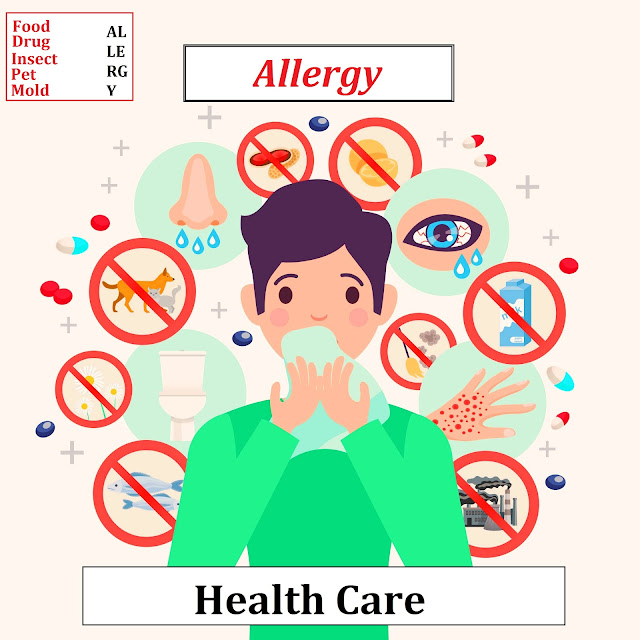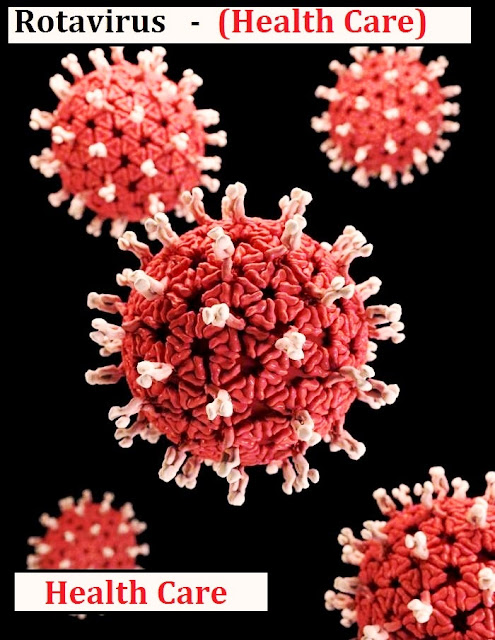allergies - kinds, symptoms, cause, treatment
Overview
Allergies happen when your immune system reacts to a foreign material, such as pollen, bee venom, or pet dander, or a meal that typically doesn't trigger a reaction in most people.
Your immune system creates molecules referred to allergies as antibodies. When you have allergies, your immune system produces antibodies that mistakenly label a specific allergen as hazardous even when it isn't. Your skin, sinuses, lungs, and digestive tract may become inflamed as a result of your immune system's reaction when you come into touch with the allergen.
Individual differences in allergy intensity mean that it can range from a simple annoyance to a potentially fatal emergency called anaphylaxis. Although most allergies cannot be cured, there are therapies that can help you feel better.
Symptoms
Your airways, sinuses, nasal passages, skin, and digestive system can all be impacted by allergy symptoms, depending on the substance in question. From mild to allegra severe allergic reactions are possible. Anaphylaxis, a potentially fatal reaction, can occasionally result from severe allergic reactions.
Allergic rhinitis, also known as hay fever, can result in:
· Sneezing
· Itching of the nose, eyes, or mouth's roof
· clogged and runny nose
· swollen, red, or watery eyes
As a result of a food allergy
· the mouth is tingling
· swelling of the throat, cheeks, lips, or tongue
· Hives \sAnaphylaxis
An allergy to bee stings can lead to:
· a significant region of edoema at the sting site
· Hives or itchiness all over the body
· Chest pain, wheezing, coughing, or shortness of breath
· Anaphylactic
As a result of a medication allergy,
· Hives
· Rash Skin Rashes Swelling of the face Wheezing Anaphylaxis
An allergic skin disorder known as atopic
dermatitis, often known as eczema, can:
· Itch \sRedden
· Fell or peel
Anaphylaxis
A severe response known as anaphylaxis can result from some seasonal allergies, such as food and insect sting allergies. Anaphylaxis is a serious medical emergency that can put you in shock. The following are symptoms and signs of anaphylaxis:
· brain function is lost
· decreased blood pressure
· severe breathing difficulties
· Lightheadedness Skin rash
· a quick, feeble heartbeat
· Vomiting and nauseous
When to visit
the doctor
If you believe you have allergy-related symptoms and over-the-counter allergy drugs aren't helping, you should probably visit your doctor. Call the doctor who prescribed it straight away if you experience symptoms after taking a new medicine.
Call 911 or your local emergency number in the event of a severe allergic response (anaphylaxis), or go to the hospital right away. Give yourself an injection straight quickly if you have an auto-injector for epinephrine with you (Auvi-Q, EpiPen, etc.).
After receiving an epinephrine shot, even if your symptoms become better, you should still visit the emergency room to make sure they don't come back.
You should schedule a visit with your doctor if you've ever experienced a severe allergic reaction or any anaphylactic signs and symptoms. You should definitely consult a specialist that specialises in allergies and immunology since the evaluation, diagnosis, and long-term care of anaphylaxis are challenging.
Causes
An allergy develops when your immune system misidentifies a typically safe chemical as a potentially harmful intruder. The immune system then makes antibodies that continue to be on the lookout for that specific allergen. These antibodies may induce the immune system to release many substances, including histamine, which cause allergy symptoms when you are exposed to the allergen again.
These are
typical allergy triggers:
· Allergens in the air, including pollen, animal dander, dust mites, and mould
· Some foods, including peanuts, tree nuts, wheat, soy, fish, shellfish, eggs, and milk
· Stings from insects, as those from bees or wasps
· medications, especially penicillin or antibiotics based on penicillin
· You might get allergic skin responses from latex or other materials you contact.
danger signs
Your risk of developing an allergy may increase if you:
· Have hay fever, hives, or eczema-related allergies or asthma in your family
· have a child
· possess an allergy disease such as asthma
Complications
The following conditions are more likely to develop if you have an allergy:
· Anaphylaxis. You have a higher chance of experiencing this severe allergic reaction if you have severe allergies. The most frequent causes of anaphylaxis include foods, drugs, and insect bites.
· Asthma. Asthma is an immune system reaction that affects the airways and breathing and is more likely to occur if you have an allergy. Exposure to an environmental allergen frequently causes asthma to flare up (allergy-induced asthma).
· infections of the ears, lungs, and sinuses If you have asthma or hay fever, your chance of developingthese disorders is increased.
Prevention
Depending on the allergy you have, you should try to prevent responses. These are some general measures:
· Steer clear of recognised triggers. Try to stay away from triggers, even if you're managing your allergy symptoms. For example, if you have a pollen allergy, remain inside during a pollen-heavy period with the windows and doors closed. Dust, vacuum, and wash your bedding often if you have a dust mite allergy.
· Consider regularly cleaning your bedding if you have a dust mite allergy.
Create a journal. Track your activities and what you consume, when symptoms arise, and what appears to assist when attempting to determine what triggers or exacerbates your allergy symptoms. You and your healthcare practitioner may find triggers with the aid of this.
· Put on a bracelet with a medical alert. A medical alert bracelet (or necklace) notifies people that you have a dangerous allergy in the event that you experience a response and are unable to speak.
Diagnosis
Your doctor
will probably:
· Inquire in depth about the symptoms and indicators.
· Examine your health.
· Have you maintained an exhaustive log of your symptoms and potential triggers?
Your health
care professional will probably:
· Instruct you to keep a thorough food diary.
· As part of the allergy assessment, let the doctor know if you've stopped consuming the suspicious food.
One or both of the tests listed below may also be suggested by your doctor. But be warned that diagnostic tests for allergies can provide false-positive or false-negative results.
Skin test Small levels of the proteins included in common allergies will irritate your skin. If you are allergic, the test site on your skin is likely to turn into a raised bump (hive).
a blood test The number of immunoglobulin E (IgE) antibodies, often known as allergy-causing antibodies, in your circulation is measured by a procedure called specific IgE (sIgE) blood testing, also known as radioallergosorbent test (RAST) or ImmunoCAP testing. A blood sample is submitted to a medical lab so that it may be examined for signs of potential allergy sensitivity.
Other tests might help detect or rule out other medical issues if your doctor thinks your symptoms aren't being caused by an allergy.
Treatment
Among the allergy therapies are:
avoidance of allergens. Your healthcare professional will assist you in taking action to recognise and prevent your allergy triggers. Usually, taking this measure will help avoid allergic responses and lessen their effects.
Medications. Depending on your allergy, medicines may help lessen symptoms and immune system reaction. Your doctor may advise using over-the-counter or prescription medicine that comes in the form of tablets, liquid, nasal sprays, or eyedrops.
Immunotherapy. Your doctor might suggest allergen immunotherapy if your allergies are severe or if they are not well controlled by existing treatments. Purified allergen extracts are injected repeatedly as part of this therapy, which is typically administered over a few years.
A sublingual pill is another type of immunotherapy that is taken until it dissolves under the tongue. Some pollen allergies are treated with medicines administered sublingually.
Epipen for emergencies An emergency epinephrine injection may need to be carried with you at all times if you have a severe allergy. An epinephrine injection (Auvi-Q, EpiPen, or other brands) given for severe allergic reactions might lessen symptoms until you receive emergency care.






